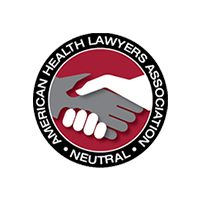If you are a New York healthcare provider and you have received a letter from an insurance company alleging that you have been overpaid for certain services, you should understand your rights under the law. The New York Insurance Law provides protections to healthcare providers and sets limitations on the scope of recoupment efforts by insurance companies.
New York Insurance Law Section 3224-b, which concerns overpayment to healthcare providers, sets forth specific protections for health care providers and requirements that insurance companies must meet. Notably, the law requires that:
- Health plans must provide 30 days written notice to health care providers:
“… (1) Other than recovery for duplicate payments, a health plan shall provide thirty days written notice to health care providers before engaging in additional overpayment recovery efforts seeking recovery of the overpayment of claims to such health care providers. Such notice shall state the patient name, service date, payment amount, proposed adjustment, and a reasonably specific explanation of the proposed adjustment.”
- Health plans must provide health care providers the opportunity to challenge the alleged overpayment:
“… (2) A health plan shall provide a health care provider with the opportunity to challenge an overpayment recovery, including the sharing of claims information, and shall establish written policies and procedures for health care providers to follow to challenge an overpayment recovery. Such challenge shall set forth the specific grounds on which the provider is challenging the overpayment recovery.”
- Except in limited circumstances, health plans must not initiate recovery efforts more than 24 months after the original payment was received:
“… (3) A health plan shall not initiate overpayment recovery efforts more than twenty-four months after the original payment was received by a health care provider. However, no such time limit shall apply to overpayment recovery efforts that are: (i) based on a reasonable belief of fraud or other intentional misconduct, or abusive billing, (ii) required by, or initiated at the request of, a self-insured plan, or (iii) required or authorized by a state or federal government program or coverage that is provided by this state or a municipality thereof to its respective employees, retirees or members. Notwithstanding the aforementioned time limitations, in the event that a health care provider asserts that a health plan has underpaid a claim or claims, the health plan may defend or set off such assertion of underpayment based on overpayments going back in time as far as the claimed underpayment. For purposes of this paragraph, “abusive billing” shall be defined as a billing practice which results in the submission of claims that are not consistent with sound fiscal, business, or medical practices and at such frequency and for such a period of time as to reflect a consistent course of conduct.”
If you have become the subject of an overpayment recovery effort by an insurance company, make sure the insurance company has provided you with your rights and followed the legal requirements in attempting to recoup such payments.
This article does not constitute legal advice. Please contact our offices should you wish to speak with one of our experienced healthcare law attorneys regarding challenging overpayment efforts or other issues. This article was written by Shea Fitzekam, who can be reached at 845-855-5900 / 845-206-4024 (direct).



